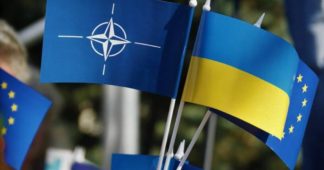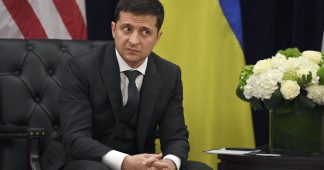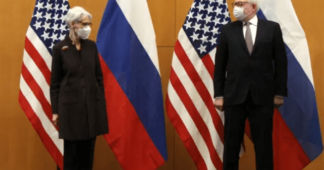The two sides agreed to hold more talks in two weeks
JCategories
Officials from Russia and Ukraine met in Paris on Wednesday and held what Moscow described as “tough” talks. Despite whatever difficulties there were, the two sides agreed that the ceasefire in Ukraine’s eastern Donbas region must be upheld.
German and French officials were also present for the meeting, which lasted eight hours. The four countries started holding talks together after the Donbas war started in 2014 in a forum known as the Normandy format.
Russia and Ukraine signed the Minsk agreements during Normandy format talks in 2014 and 2015 that established a ceasefire in the Donbas. While there have been occasional flare-ups, the war has essentially been at a stalemate since 2015.
Russian envoy Dmitry Kozak said that “despite all the differences in interpretations (of the Minsk agreements), we agreed that the ceasefire must be maintained by all the parties in line with the accords.” He also said the next Normandy format meeting will take place in two weeks in Berlin.
The talks were held at the Elysee, the residence of French President Emmanuel Macron. In a statement, the Elysee said that the envoys “support unconditional respect for the ceasefire and full adherence to the ceasefire strengthening measures of July 22, 2020, regardless of differences on other issues relating to the implementation of the Minsk agreements.”
Under the Minsk agreements, Ukraine agreed to give a level of autonomy to the breakaway Republics of Lugansk and Donetsk, which hasn’t happened yet. In December, The Associated Press reported that the Biden administration was considering pressuring Ukraine to grant the separatists autonomy, a move that could significantly de-escalate tensions in the region.
Published at news.antiwar.com
We remind our readers that publication of articles on our site does not mean that we agree with what is written. Our policy is to publish anything which we consider of interest, so as to assist our readers in forming their opinions. Sometimes we even publish articles with which we totally disagree, since we believe it is important for our readers to be informed on as wide a spectrum of views as possible.











